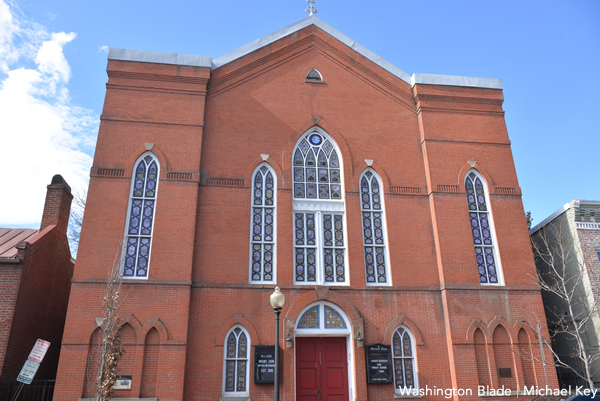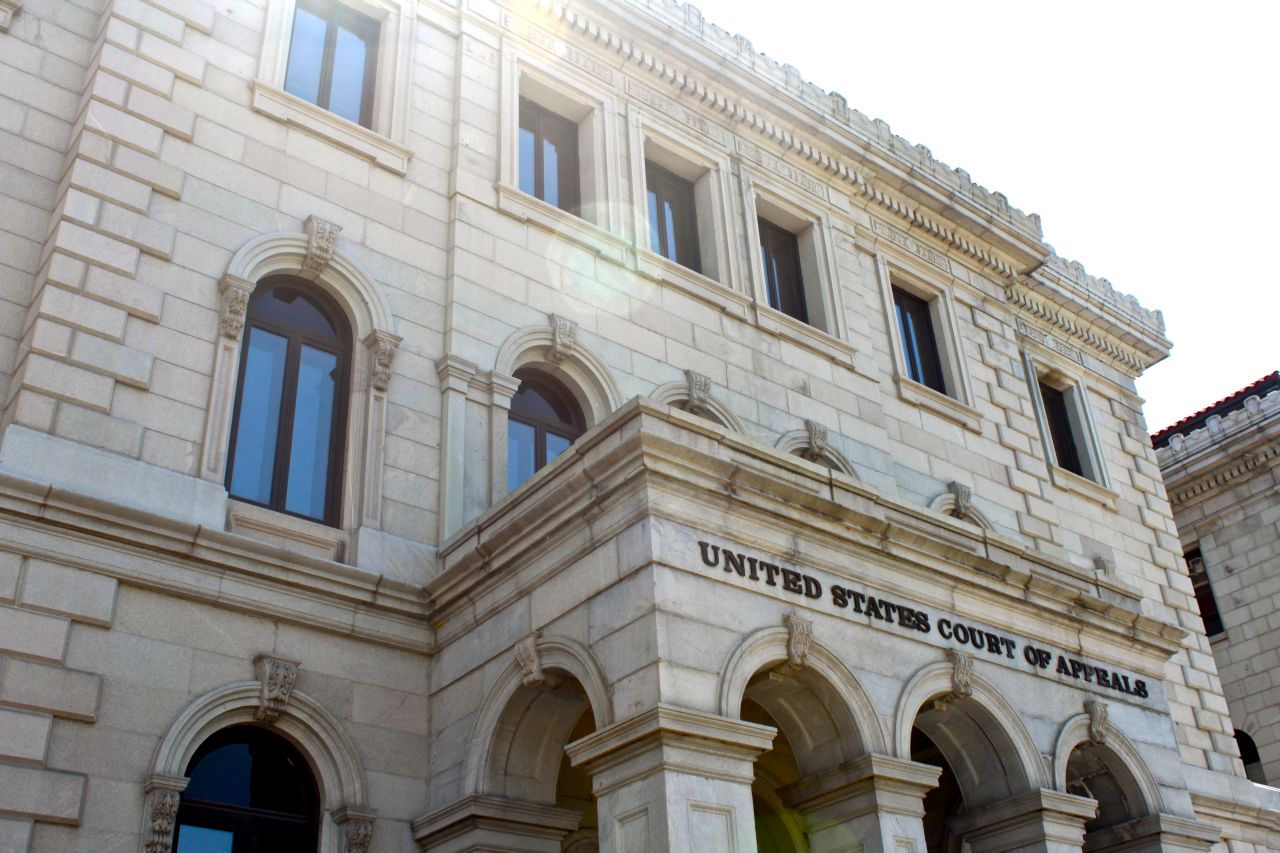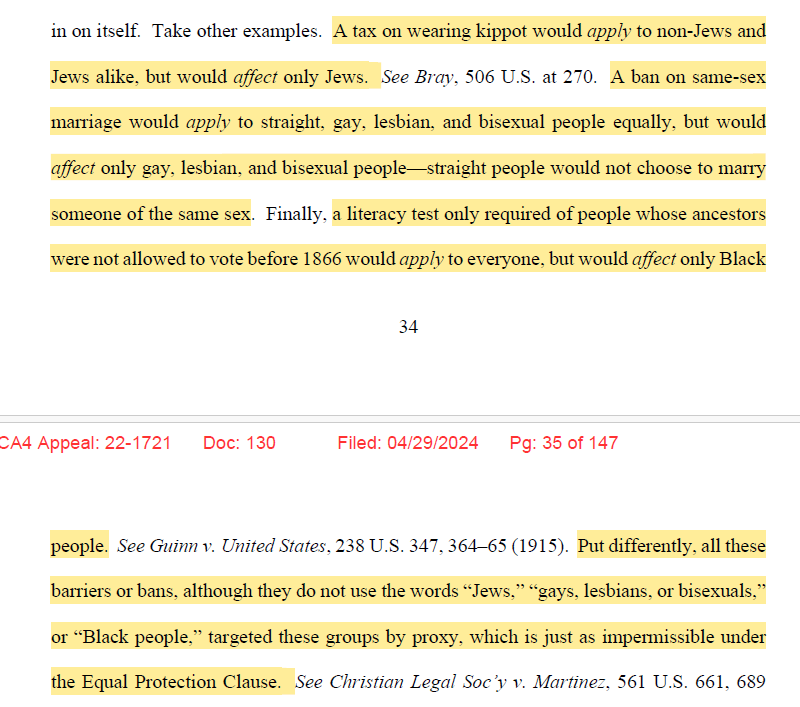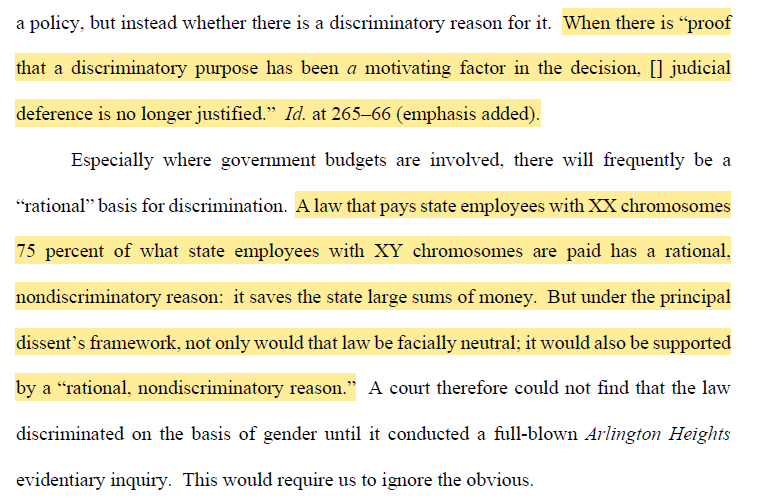National
Illinois marriage bill author defends non-vote
Harris rebuts critics, says delay puts measure in better position for fall
LGBT rights advocates expressed anger on Friday after the Illinois House adjourned its legislative session without voting on a same-sex marriage bill.
Some of the criticism fell on gay Rep. Greg Harris, the author of the bill, for failing to bring it to a vote. The Illinois House speaker, Michael Madigan, has extended a deadline for the bill, which will allow it to come to a vote in a November veto session.
In a conversation with the Washington Blade on Monday, Harris said that a last-minute media blitz by marriage equality opponents had rankled some of the bill’s likely supporters. Harris said the decision to table the bill would lead to a better result in the long term, as colleagues could avoid having to go on the record before they were prepared to.
“I think that at the very end they realized that back in their home districts for some folks that there were horrendous distortions of the truth,” Harris told the Blade. “They wanted to be sure that their constituents understand that — one — this bill treats all people equally and — two — that we also respect the rights and freedoms of religions.”
Though following the vote, some same-sex marriage advocates criticized the bill’s author for not getting his colleagues on record, Harris said he believes the bill will have a better chance of passing before the end of the year if he’s able to give his colleagues more time to lay the groundwork in their districts.
“I think it is very clear that at the end when some of my colleagues came to me and said should the bill be called that day, they would not be able to vote for it, until they had time to get back to their districts and undo some of the misconceptions and misinformation out there and truly explain what the bill meant,” Harris said. “If a bunch of people had voted no, then it becomes incredibly difficult then to change those votes to yes should it come back later.”
But some longtime Illinois activists remain angry over the decision to table the measure, and claim the process was bungled due to secrecy and a myriad of political miscalculations.
“I am extremely angry at him,” said longtime Illinois gay activist Rick Garcia, senior policy adviser at Illinois advocacy group The Civil Rights Agenda. “I think it’s justified anger. But there are few with [Rep. Harris’] history of advocating for the gay community, and people with HIV, and his successes are innumerable.”
Garcia, who called Friday’s aborted vote “a disaster,” mixed praise with scorn when discussing Harris’ handling of the bill with the Blade on Monday.
“But I don’t want to point fingers or cast blame, because I’m just as much to blame,” Garcia said.
“I’m really angry and pissed off,” Garcia told the Blade. “I’m very angry at myself for allowing this fiasco to happen. I’ve passed all sorts of gay rights legislation in Illinois, and for months and months and months have been urging a true coalition approach — there was none — I have been urging we do something as simple as a roll call, and the sponsor would not share his roll call with any of us. Without a roll call we might as well just have blinders on, because we don’t know where we’re going or who to talk to or what to do. I also urged that we have a campaign manager for this, and then a guy who was Mr. Madigan’s staffer was the one that was hired. Shaw Decremer.”
Garcia told the Blade that he’s working with other Illinois LGBT community leaders to assemble a new coalition to work toward passage in the veto session, and is actively seeking leaders of a multitude of community organizations and people of color, “not just straight white boys.”
“They can hire as many straight professional lobbyists as they desire but they’re not going to drive the bus anymore,” he said. “Our community is, our supporters are, and that’s what we’re going to do.”
Rep. Harris disputes the idea that community leaders were kept in the dark regarding the legislative process.
“I think there are layers and layers of involvement,” Harris said. “Each one is important and each one overlaps and interacts. There’s the public relations messaging. There’s the organizing of business leadership, there’s organizing of leadership in the Latino community, the African-American community, there’s on-the-ground, in-district organizing, there’s organizing of PFLAG families. There are many, many layers of organizing and I think people did wonderful, wonderful jobs.”
“Look at how fast we’ve moved on this issue,” Harris continued. “We didn’t get the result we wanted when we wanted, but we’re perfectly positioned to win.”
Harris said that opponents of same-sex marriage attempted to scuttle the legislation by turning historically marginalized communities against one another, and did so by using “robocalls” to pressure lawmakers and mobilizing religious leaders to lobby against the bill in a public, and — as Harris sees it — deceptive way.
“We’ve seen in state after state the same tactics from some of our opponents that have been used to try to drive a wedge between communities, and that is just not what this bill does,” Harris said. “If you read the press releases from some of the different religious groups that are affiliated with our opposition, they are crowing and taking credit,” he says.
Harris says that groups like the Urban League and the NAACP, as well as prominent African-American supporters of the bill worked very hard to try to combat what Harris called the “misinformation” that opponents of the bill were pushing in districts where support was tenuous, but that not enough work had been done to promote the religious liberties espoused in the bill, and that he believes his colleagues need more time to secure their positions with their constituents back home, or risk being threatened in the primaries.
Harris sounded resolute when asked about not backing down and calling a vote on the marriage bill in the November veto session.
“[My colleagues] made a commitment that when we come back they will be willing to call a vote, so I’m going to take them at their word.”
Harris did not comment on whether speaker Madigan had been as supportive and enthusiastic about this legislation as he had been during the successful 2010 push for civil unions, saying the speaker had publicly stated his support for the marriage bill.
Harris praised the members of the African-American legislative caucus and the Republican caucus — namely GOP co-sponsors Ron Sandak and Ed Sullivan — who backed the bill despite strong pressure from opponents. However, Harris said that an impending battle over the minority leader position in the House forced some GOP lawmakers to hold back from supporting the bill at this time, saying they could not vote in favor of the bill because of “intra-party politics.”
The longtime lawmaker — who authored the state’s comprehensive non-discrimination bill, and the state’s successful civil unions bill — confirmed that the leader of the African-American caucus, Rep. Ken Duncan — also a sponsor of the bill — had encouraged him to call the vote “earlier in the session.” However, Harris said the caucuses themselves took no position on the bill, so pressure to not call the bill to a vote did not come from the Black Caucus or the Republican caucus, but rather from individual lawmakers who Harris said expressed nervousness about coming primaries, and other issues specific to their home districts.
Harris encouraged same-sex marriage supporters not to get bogged down in looking for someone to blame, but to keep the pressure on lawmakers in anticipation of another chance at a vote in this fall’s session.
“We need to also remember our history and focus on the fact that our opponents will do whatever they need to stop full equality from coming, but the direction of this country is clear, and equality and fairness will win out,” Harris said.
“Also remember other history in the state of Illinois — back in 1975, the very first time that the Human Rights Act was put into place that protected people who are LGBT from being fired or denied housing or public accommodation because of their sexual orientation. And that took 30 years to pass, and there were ups and downs during that process. When I first introduced the marriage bill in 2007, I’m not sure that anyone thought that we would be as a nation in the position we are today where there’s been so much progress on this issue. But we have to remember that there is still hard work, that our opposition is fierce, that they have a strategy. We have to be sure that we are uniters and not dividers of communities, and we have to stand up for equality — not just for ourselves — but for all other people who suffer at the hands of repression.”
National
United Methodist Church removes 40-year ban on gay clergy
Delegates also voted for other LGBTQ-inclusive measures

The United Methodist Church on Wednesday removed a ban on gay clergy that was in place for more than 40 years, voting to also allow LGBTQ weddings and end prohibitions on the use of United Methodist funds to “promote acceptance of homosexuality.”
Overturning the policy forbidding the church from ordaining “self-avowed practicing homosexuals” effectively formalized a practice that had caused an estimated quarter of U.S. congregations to leave the church.
The New York Times notes additional votes “affirming L.G.B.T.Q. inclusion in the church are expected before the meeting adjourns on Friday.” Wednesday’s measures were passed overwhelmingly and without debate. Delegates met in Charlotte, N.C.
According to the church’s General Council on Finance and Administration, there were 5,424,175 members in the U.S. in 2022 with an estimated global membership approaching 10 million.
The Times notes that other matters of business last week included a “regionalization” plan, which gave autonomy to different regions such that they can establish their own rules on matters including issues of sexuality — about which international factions are likelier to have more conservative views.
Rev. Kipp Nelson of St. Johns’s on the Lake Methodist Church in Miami shared a statement praising the new developments:
“It is a glorious day in the United Methodist Church. As a worldwide denomination, we have now publicly proclaimed the boundless love of God and finally slung open the doors of our church so that all people, no matter their identities or orientations, may pursue the calling of their hearts.
“Truly, all are loved and belong here among us. I am honored to serve as a pastor in the United Methodist Church for such a time as this, for our future is bright and filled with hope. Praise be, praise be.”
Federal Government
Republican state AGs challenge Biden administration’s revised Title IX policies
New rules protect LGBTQ students from discrimination

Four Republicans state attorneys general have sued the Biden-Harris administration over the U.S. Department of Education’s new Title IX policies that were finalized April 19 and carry anti-discrimination protections for LGBTQ students in public schools.
The lawsuit filed on Tuesday, which is led by the attorneys general of Kentucky and Tennessee, follows a pair of legal challenges from nine Republican states on Monday — all contesting the administration’s interpretation that sex-based discrimination under the statute also covers that which is based on the victim’s sexual orientation or gender identity.
The administration also rolled back Trump-era rules governing how schools must respond to allegations of sexual harassment and sexual assault, which were widely perceived as biased in favor of the interests of those who are accused.
“The U.S. Department of Education has no authority to let boys into girls’ locker rooms,” Tennessee Attorney General Jonathan Skrmetti said in a statement. “In the decades since its adoption, Title IX has been universally understood to protect the privacy and safety of women in private spaces like locker rooms and bathrooms.”
“Florida is suing the Biden administration over its unlawful Title IX changes,” Florida Gov. Ron DeSantis wrote on social media. “Biden is abusing his constitutional authority to push an ideological agenda that harms women and girls and conflicts with the truth.”
After announcing the finalization of the department’s new rules, Education Secretary Miguel Cardona told reporters, “These regulations make it crystal clear that everyone can access schools that are safe, welcoming and that respect their rights.”
The new rule does not provide guidance on whether schools must allow transgender students to play on sports teams corresponding with their gender identity to comply with Title IX, a question that is addressed in a separate rule proposed by the agency in April.
LGBTQ and civil rights advocacy groups praised the changes. Lambda Legal issued a statement arguing the new rule “protects LGBTQ+ students from discrimination and other abuse,” adding that it “appropriately underscores that Title IX’s civil rights protections clearly cover LGBTQ+ students, as well as survivors and pregnant and parenting students across race and gender identity.”
Federal Government
4th Circuit rules gender identity is a protected characteristic
Ruling a response to N.C., W.Va. legal challenges

BY ERIN REED | The 4th U.S. Circuit Court of Appeals ruled Monday that transgender people are a protected class and that Medicaid bans on trans care are unconstitutional.
Furthermore, the court ruled that discriminating based on a diagnosis of gender dysphoria is discrimination based on gender identity and sex. The ruling is in response to lower court challenges against state laws and policies in North Carolina and West Virginia that prevent trans people on state plans or Medicaid from obtaining coverage for gender-affirming care; those lower courts found such exclusions unconstitutional.
In issuing the final ruling, the 4th Circuit declared that trans exclusions were “obviously discriminatory” and were “in violation of the equal protection clause” of the Constitution, upholding lower court rulings that barred the discriminatory exclusions.
The 4th Circuit ruling focused on two cases in states within its jurisdiction: North Carolina and West Virginia. In North Carolina, trans state employees who rely on the State Health Plan were unable to use it to obtain gender-affirming care for gender dysphoria diagnoses.
In West Virginia, a similar exclusion applied to those on the state’s Medicaid plan for surgeries related to a diagnosis of gender dysphoria. Both exclusions were overturned by lower courts, and both states appealed to the 4th Circuit.
Attorneys for the states had argued that the policies were not discriminatory because the exclusions for gender affirming care “apply to everyone, not just transgender people.” The majority of the court, however, struck down such a claim, pointing to several other cases where such arguments break down, such as same-sex marriage bans “applying to straight, gay, lesbian, and bisexual people equally,” even though straight people would be entirely unaffected by such bans.
Other cases cited included literacy tests, a tax on wearing kippot for Jewish people, and interracial marriage in Loving v. Virginia.
See this portion of the court analysis here:

Of particular note in the majority opinion was a section on Geduldig v. Aiello that seemed laser-targeted toward an eventual U.S. Supreme Court decision on discriminatory policies targeting trans people. Geduldig v. Aiello, a 1974 ruling, determined that pregnancy discrimination is not inherently sex discrimination because it does not “classify on sex,” but rather, on pregnancy status.
Using similar arguments, the states claimed that gender affirming care exclusions did not classify or discriminate based on trans status or sex, but rather, on a diagnosis of gender dysphoria and treatments to alleviate that dysphoria.
The majority was unconvinced, ruling, “gender dysphoria is so intimately related to transgender status as to be virtually indistinguishable from it. The excluded treatments aim at addressing incongruity between sex assigned at birth and gender identity, the very heart of transgender status.” In doing so, the majority cited several cases, many from after Geduldig was decided.
Notably, Geduldig was cited in both the 6th and 11th Circuit decisions upholding gender affirming care bans in a handful of states.
The court also pointed to the potentially ridiculous conclusions that strict readings of what counts as proxy discrimination could lead to, such as if legislators attempted to use “XX chromosomes” and “XY chromosomes” to get around sex discrimination policies:
Importantly, the court also rebutted recent arguments that Bostock applies only to “limited Title VII claims involving employers who fired” LGBTQ employees, and not to Title IX, which the Affordable Care Act’s anti-discrimination mandate references. The majority stated that this is not the case, and that there is “nothing in Bostock to suggest the holding was that narrow.”
Ultimately, the court ruled that the exclusions on trans care violate the Equal Protection Clause of the Constitution. The court also ruled that the West Virginia Medicaid Program violates the Medicaid Act and the anti-discrimination provisions of the Affordable Care Act.
Additionally, the court upheld the dismissal of anti-trans expert testimony for lacking relevant expertise. West Virginia and North Carolina must end trans care exclusions in line with earlier district court decisions.
The decision will likely have nationwide impacts on court cases in other districts. The case had become a major battleground for trans rights, with dozens of states filing amicus briefs in favor or against the protection of the equal process rights of trans people. Twenty-one Republican states filed an amicus brief in favor of denying trans people anti-discrimination protections in healthcare, and 17 Democratic states joined an amicus brief in support of the healthcare rights of trans individuals.
Many Republican states are defending anti-trans laws that discriminate against trans people by banning or limiting gender-affirming care. These laws could come under threat if the legal rationale used in this decision is adopted by other circuits. In the 4th Circuit’s jurisdiction, West Virginia and North Carolina already have gender-affirming care bans for trans youth in place, and South Carolina may consider a similar bill this week.
The decision could potentially be used as precedent to challenge all of those laws in the near future and to deter South Carolina’s bill from passing into law.
The decision is the latest in a web of legal battles concerning trans people. Earlier this month, the 4th Circuit also reversed a sports ban in West Virginia, ruling that Title IX protects trans student athletes. However, the Supreme Court recently narrowed a victory for trans healthcare from the 9th U.S. Circuit Court of Appeals and allowed Idaho to continue enforcing its ban on gender-affirming care for everyone except the two plaintiffs in the case.
Importantly, that decision was not about the constitutionality of gender-affirming care, but the limits of temporary injunctions in the early stages of a constitutional challenge to discriminatory state laws. It is likely that the Supreme Court will ultimately hear cases on this topic in the near future.
Celebrating the victory, Lambda Legal Counsel and Health Care Strategist Omar Gonzalez-Pagan said in a posted statement, “The court’s decision sends a clear message that gender-affirming care is critical medical care for transgender people and that denying it is harmful and unlawful … We hope this decision makes it clear to policy makers across the country that health care decisions belong to patients, their families, and their doctors, not to politicians.”
****************************************************************************

Erin Reed is a transgender woman (she/her pronouns) and researcher who tracks anti-LGBTQ+ legislation around the world and helps people become better advocates for their queer family, friends, colleagues, and community. Reed also is a social media consultant and public speaker.
******************************************************************************************
The preceding article was first published at Erin In The Morning and is republished with permission.






















